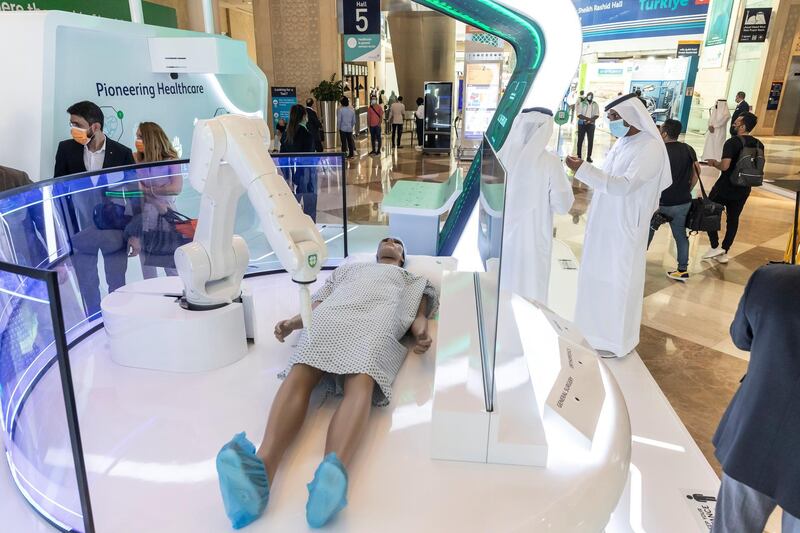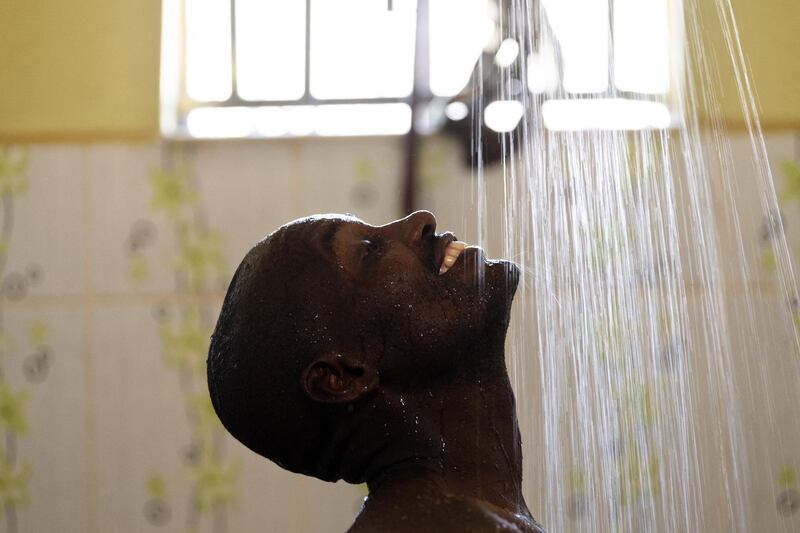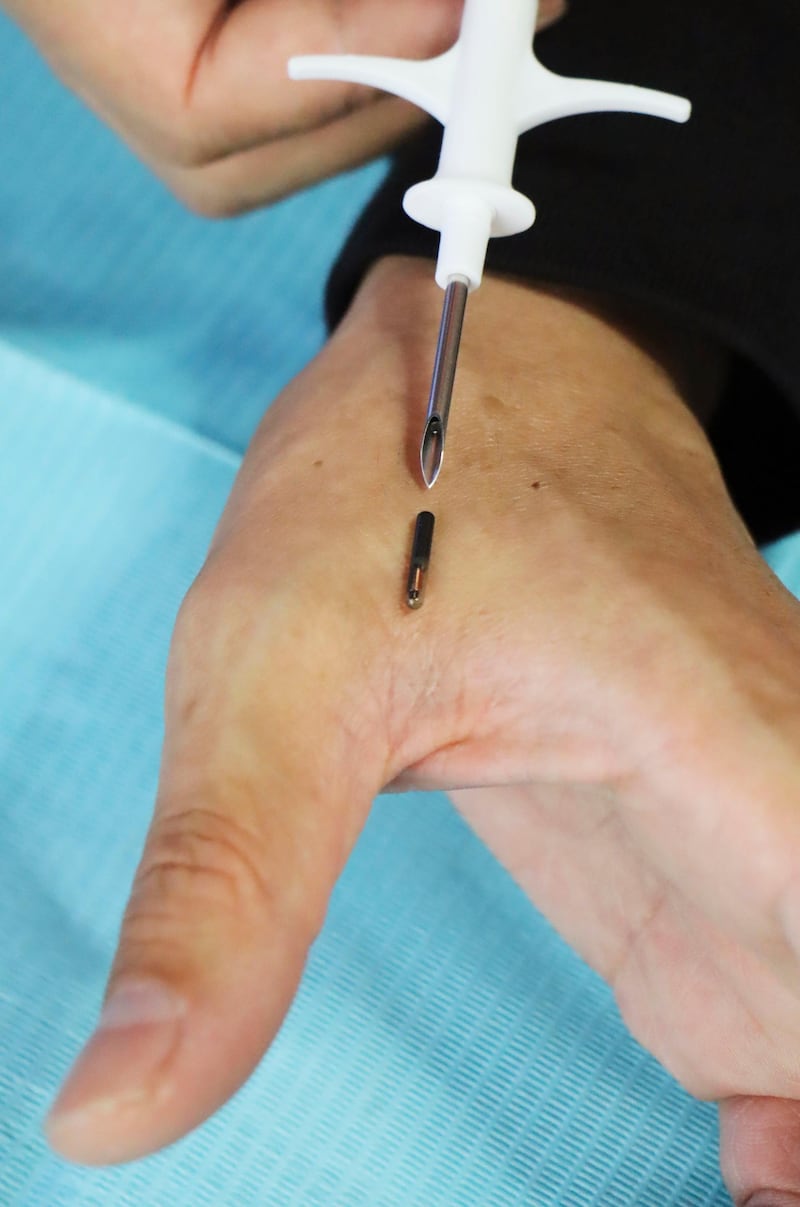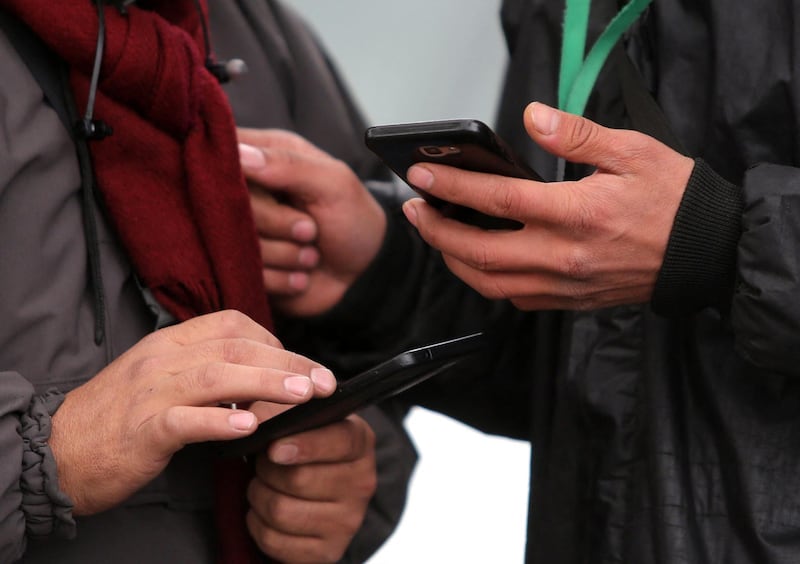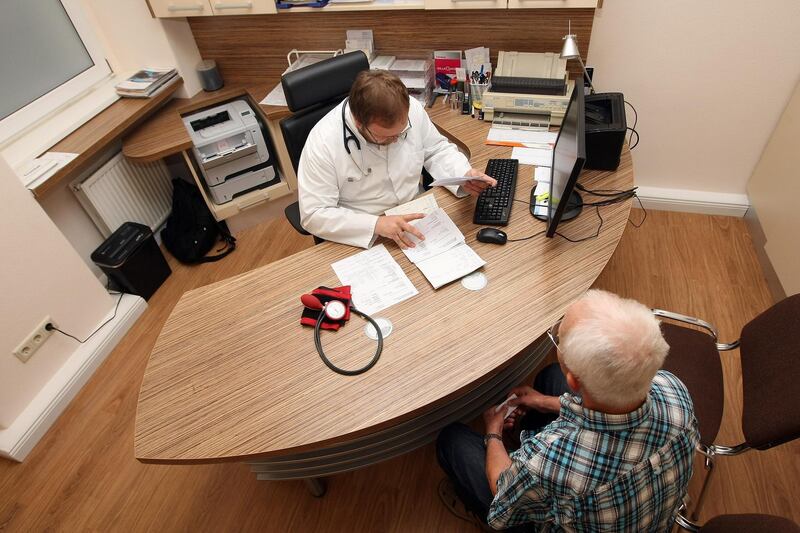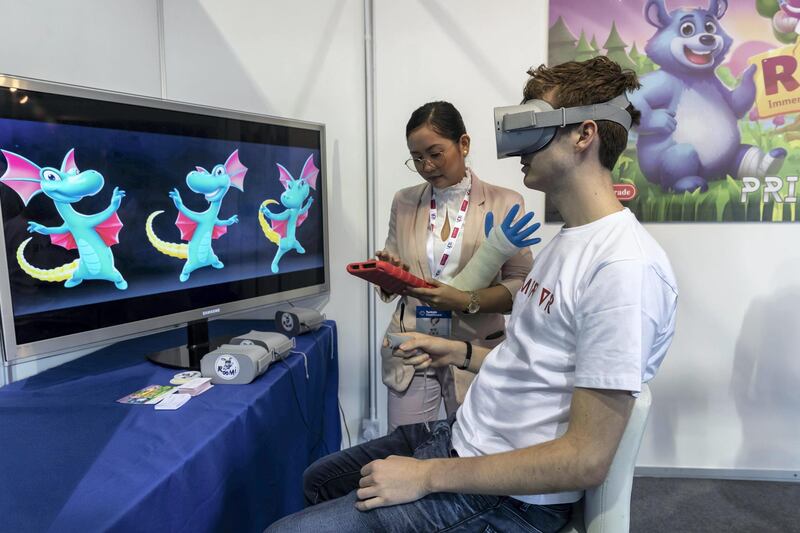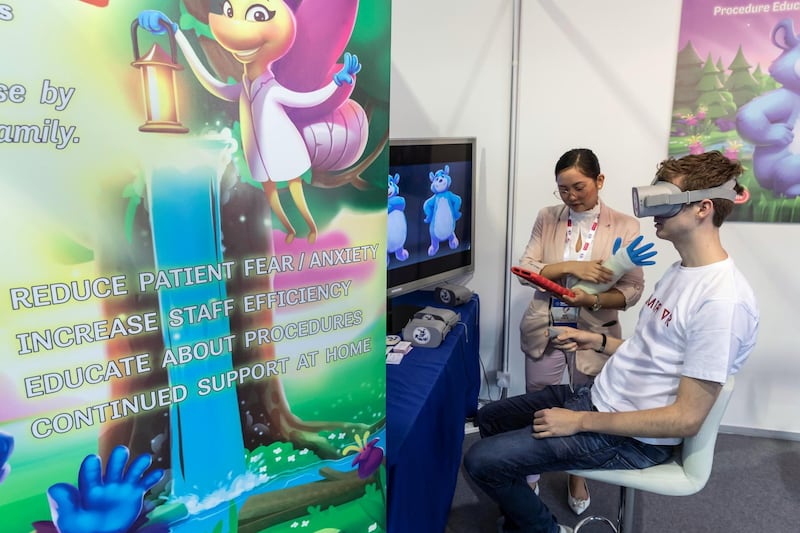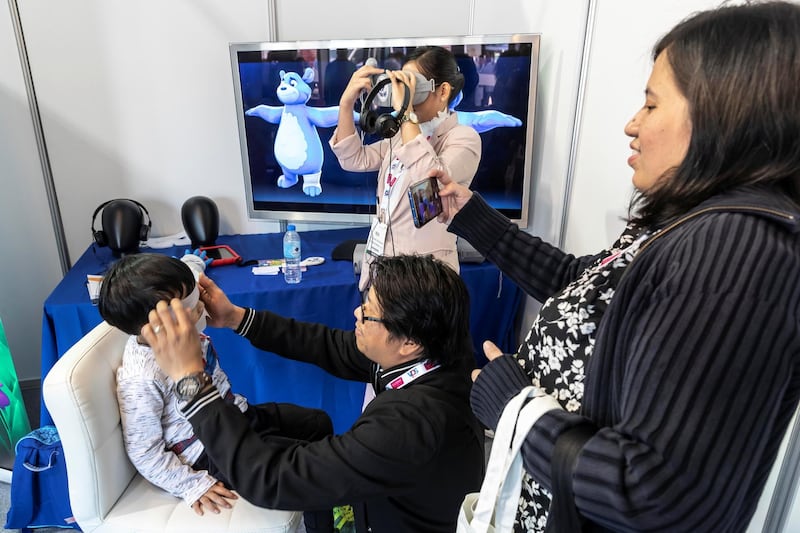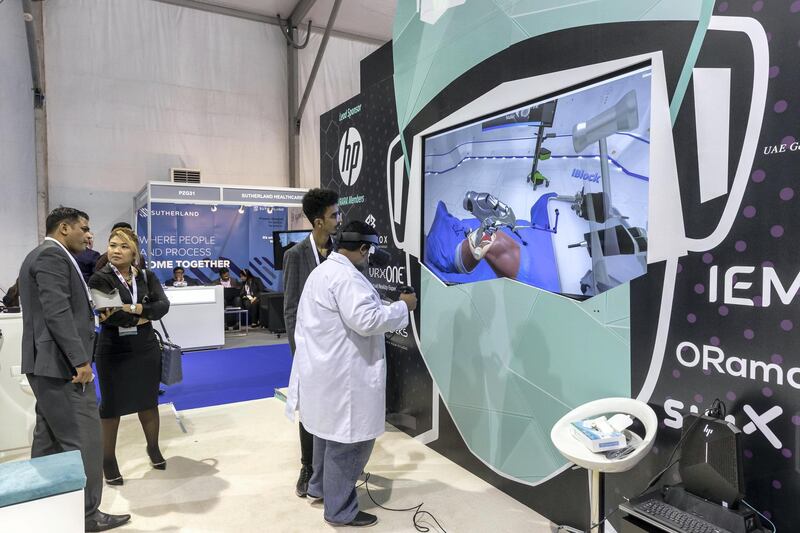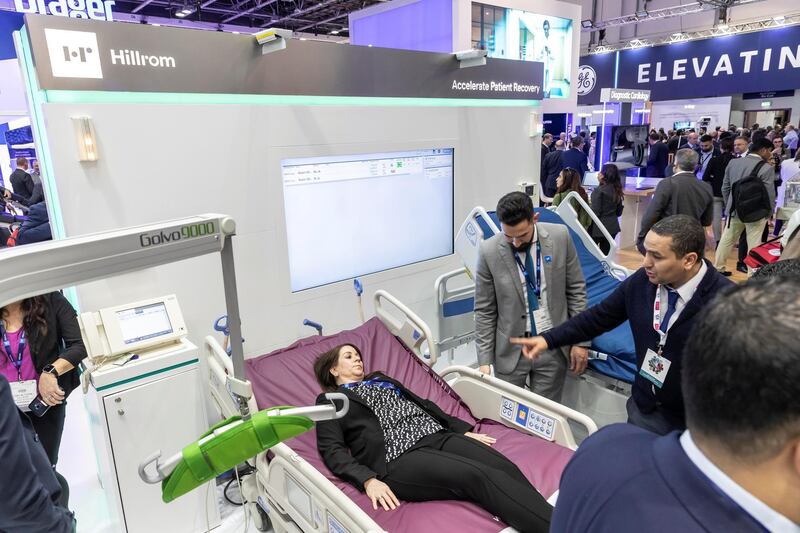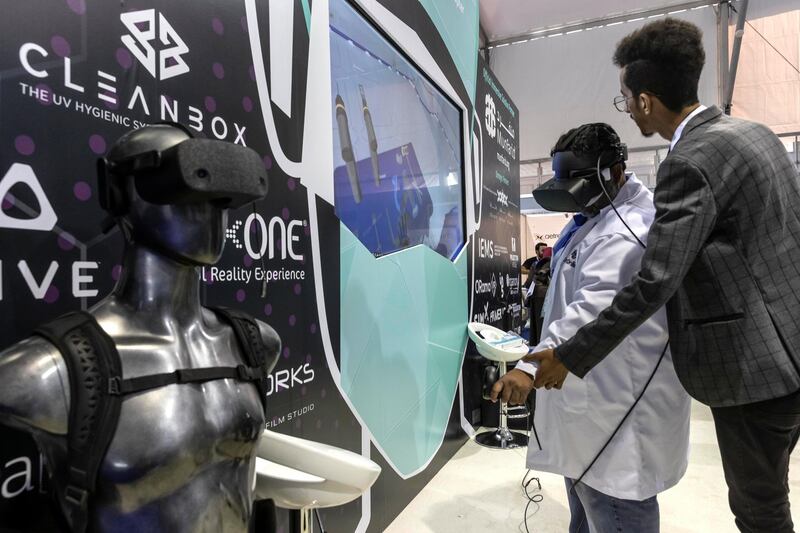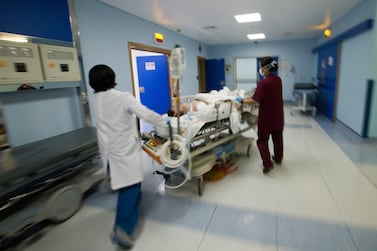Our lives will resemble scenes from a science fiction film by the year 2050 as microchip implants carry out tasks we use our mobile phones for, a Dubai conference has heard.
Mobiles will be history and we will have MRI scans in our showers, a health expert said during the final day of the Arab Health trade exhibition at Dubai’s World Trade Centre.
Healthcare will be completely digital in less than 30 years, with trips to the doctor becoming unnecessary, said Reenita Das, senior vice president with consultants Frost and Sullivan.
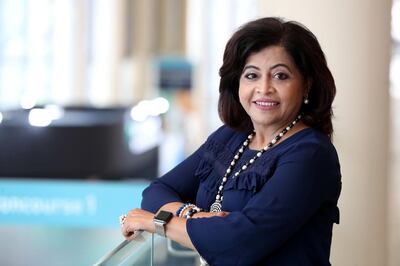
The National takes a look at Ms Dias' vision for the future.
A microchip inside us will record everything
Microchips are the way of the future, according to Ms Das, and will record our every move.
“You will be able to have a microchip implanted into you and it will act as a passport for your life,” she said.
“It’s going to record your life, your work, your health and everything you do.”
Our bodies will be scanned every morning at home
“After you wake up you will have a full MRI in the shower that records all your vitals,” she said.
“This information is then sent to a medical care them who will use it to decide what vitamins or drugs you need to take for the day ahead.”
She said this will rule out misdiagnosis and taking the wrong medication.
“Your blood pressure and weight, and other statistics, will all be displayed on the bathroom mirror within a split-second.”
End of mobile phones
The mobile phone will be no more, according to Ms Das.
The majority of the tasks a phone is used for will be performed by the microchip embedded into our bodies.
“You will still be able to view the news of the day, look at appointments or anything else you want but it will be transported either neurologically or ocularly by the implant inside you,” she said.
“The chip will also wake us up calmly rather than having to be woken up by the sound of a blaring alarm.”
In good news for coffee lovers, Ms Dias predicted the microchip would send a signal to a coffee machine – read by AI –to ensure the perfect morning brew is ready.
No more trips to the doctor
Another change that will occur by the mid-21st century will be no more trips to visit the doctor for a consultation, Ms Das said.
“AI will prescribe the best possible cocktail of medication or vitamins you need to run your day.”
“You will never have to make an appointment to go and see a doctor again.”
Data will be big business
Ms Das said healthcare data would become one of the most valuable commodities of the future world.
“Thirty per cent of the world’s data already comes from healthcare,” she said.
“The personal digital data market is expected to be worth $500 million by 2025 but by 2028 it is predicted to grow to $5 billion.”
